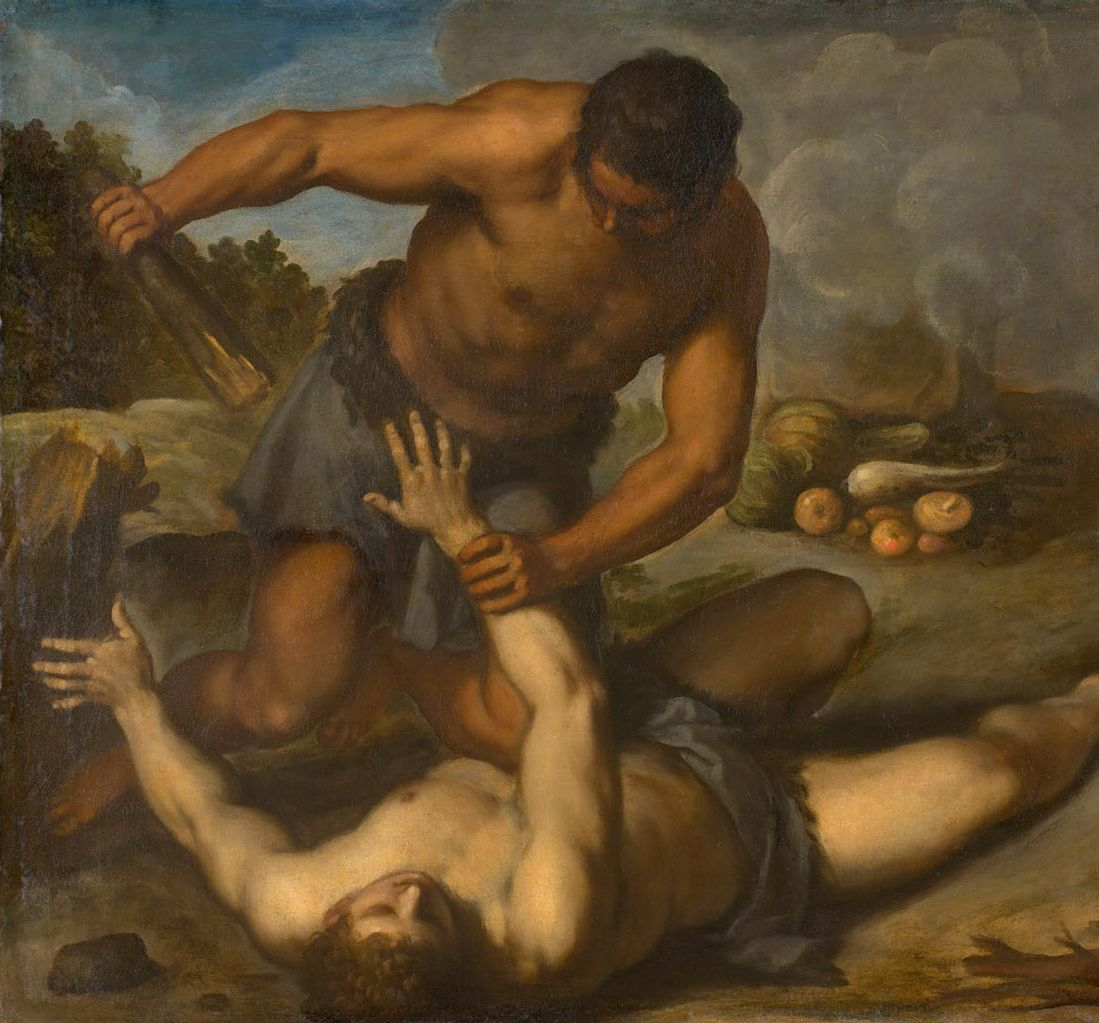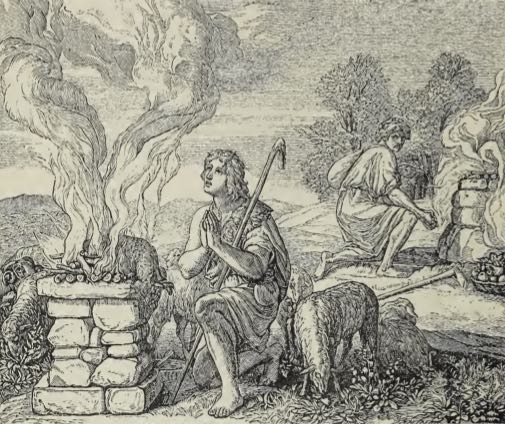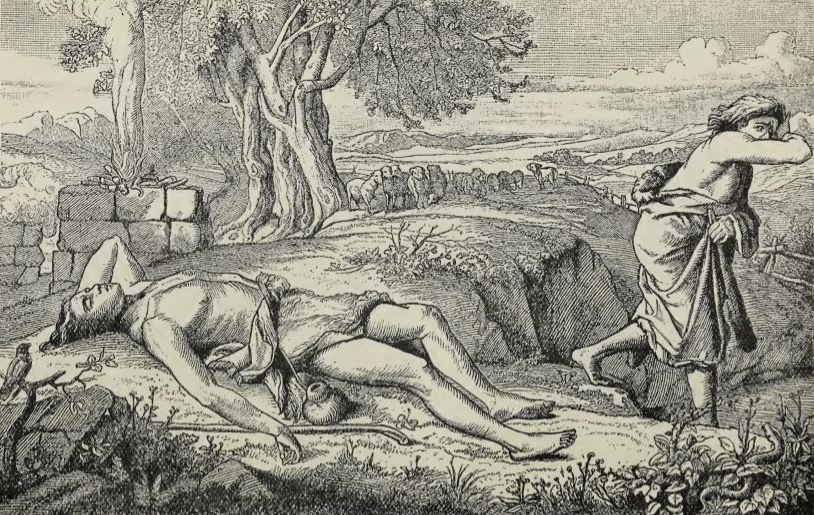
All the way back in the earliest days of creation, there were two brothers, the first sons of Adam and Eve. One was a shepherd and the other a farmer. Both were hard workers and each one put all of his effort into producing the best livestock or crops possible.
When the appropriate time which had been appointed by God came, as an act of worship, each brother offered up to Him a portion of what he had raised as his sacrifice. At face value, this approach sounded good. The first brother, Abel, prepared an offering of the best one of his sheep, while Cain put together the best portion of his crops.
Table of Contents

“But unto Cain and to his offering [God] had not respect. And Cain was very [angry], and his countenance fell”
Genesis 4:5
But the problem came when they actually presented their sacrifices to God. He accepted Abel’s offering but did not accept Cain’s, which he did not take well. “But unto Cain and to his offering [God] had not respect. And Cain was very [angry], and his countenance fell” (Genesis 4:5). Cain had felt that this was the right way to go, since his brother raised sheep and he tilled the ground.
Why did God refuse Cain’s offering? And what was so special about his brother’s offering that God accepted it? The answer does not lie in the offerings themselves. Although God required an animal sacrifice, in order to (temporarily) cover man’s sins committed against Him, that was not the real issue in this case.
The Wrong Motive
It was Cain’s motive behind his offering that displeased God. Cain viewed the whole process in an unspiritual manner, as seen in his subsequent actions. His primary focus was not on God, but on himself. The book of Hebrews states that “By faith Abel offered unto God a more excellent sacrifice than Cain, by which he obtained witness that he was righteous [blameless, in right standing], God testifying of his gifts: and by it he being dead [still] speaketh” (Hebrews 11:4).
Cain made the whole sacrificial process into nothing more than a ritual.
He did not feel that he had done anything wrong, and therefore made no attempt to seek forgiveness. Even though God gave him an opportunity to make things right with Him, he refused to do so. The result was that Cain (and especially his brother) paid dearly for his wrongful motives and actions.

Sin’s Escalation
“…Cain talked with Abel his brother: and it came to pass, when they were in the field, that Cain rose up against Abel his brother, and slew him” (Genesis 4:8). In verse seven, God had gently and subtly warned him that sin was right there waiting to overtake him. But Cain ignored the warning. Figuratively speaking, it could be said that he was not only in the river floating rapidly toward a waterfall, but he was now also pushing himself along even faster with a large stick!
Cain never saw the offering as a means of fellowship with God and as worship of His own creator. He considered it to be more like dues to be paid to a civic organization.
Cain’s self-centeredness bred jealousy and rage, which quickly led to murder. To make matters even worse, he still refused to go to God and seek forgiveness. God the Father, in His infinite love, longsuffering, and patience, continued to extend mercy and grace to him, but Cain would have none of it.
In verse nine, we see further evidence of Cain’s sinful nature, “And the Lord said unto Cain, Where is Abel thy brother? And he said, I know not: Am I my brother’s keeper?” Once again, God made a way possible for Cain to make things right with Him, even though he was now fully guilty of premeditated murder. But Cain only added to his crimes by lying to God about the evil act he had just committed.
Cain never saw the offering as a means of fellowship with God and as worship of His own creator. He considered it to be more like dues to be paid to a civic organization. He felt that, as long as he performed what was required, he could continue to remain in God’s ‘club’ and retain all of its privileges. He was not interested in God’s view of it all.
The Right Motive
David declared, “…thou desirest not sacrifice; else would I give it: thou delightest not in burnt offering” (Psalm 51:16). This appears to contradict what God had told Cain, until we read the next verse: “The sacrifices of God are a broken spirit: a broken and a contrite heart, O God, thou wilt not despise.” Therefore, it is not so much the method of worship, but the heart of the worshipper that God is so greatly interested in.
Abel’s sacrificial offering came from his heart. He loved God and wanted to present a token of his love and gratitude in return, whereas Cain’s offering could be considered as coming from his head. He was looking for the pat-on-the-back, for God’s praise, in return for his effort. Cain wanted to please God, but in his own way and for his own benefit.
Sadly, even today, too many are offering up sacrifices that God rejects—and they don’t even know it!
And, in the same way, God looks at our heart when we come to Him. He wants to see if what we offer up to Him is from the correct motive as well. Sadly, even today, too many are offering up sacrifices that God rejects—and they don’t even know it! They come to God full of pride, offering up a portion of the product of their physical efforts, while giving little to none of their heart to Him. Then, when someone else comes truly broken before God, yielding and pouring out his heart, jealousy and envy quickly rise up in the other individual to the point where he would like to kill the one whom God is pleased with.

Such people may not actually pick up a knife and physically stab the other person to death, but they do commit the act in their heart. Jesus addressed this when He said “…I say unto you, that whosoever looketh on a woman to lust after her hath committed adultery with her already in his heart” (Matthew 5:28). He was proclaiming that even entertaining the thought of the evil act was not much different from actually committing it.
We Are to Please God
Through His Holy Spirit, God recorded this incident that took place between Him and Cain and Abel as a reminder for us of what can happen when we seek (and ultimately use) God for our own gain. He also demonstrates here just how loving and merciful God is toward His creation. He could have eliminated Cain right from the start, or shielded Abel from any attacks or repercussions. Instead, even though Cain had wronged Him, God continued to give him opportunities to make his way right with Him again.
God is not expecting the perfect offering or sacrifice from man—He has already provided that through His Son, Jesus Christ.
Abel’s motive was to please God, all the way to the point of his death, while Cain wanted mainly to please himself, no matter who died in the process—even if it had to be his own brother! God is not expecting the perfect offering or sacrifice from man—He has already provided that through His Son, Jesus Christ. But what He does want is the perfect heart—a heart after His own. That is the sacrifice from man that pleases God the most.
[Image credits: Featured image (when applicable) by Palma_il_Giovane from Kunsthistorisches Museum on Picryl (Public Domain Mark PDM)]

